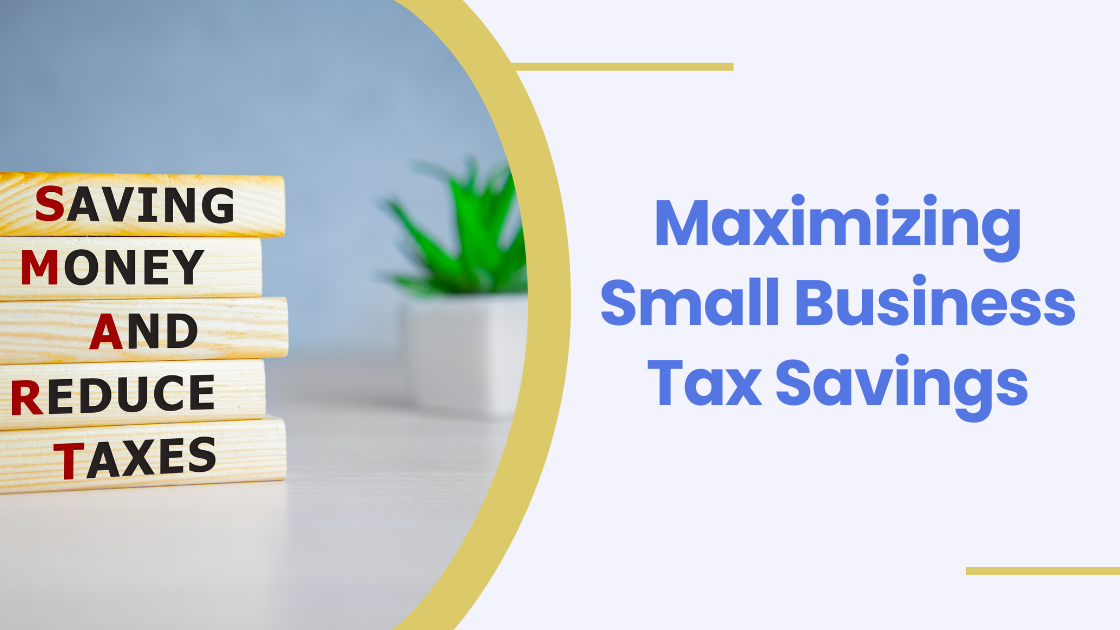- Tax Strategy
- 3 min read
Maximizing Small Business Tax Savings

- Share via:
- Copy link
As a tax professional, you're always looking for ways to provide your clients with valuable advice that maximizes their tax savings and supports their financial goals. From choosing the right business structure to leveraging health insurance deductions, hiring family members, utilizing depreciation strategies, and forming charitable LLCs, there are numerous complex tax strategies available. Here, we tease insights from five expert blogs that explore these advanced tax planning techniques.
Choosing the Right Business Entity: Setting the Foundation for Success
When starting a business, one of the first and most critical decisions is selecting the right business entity. The structure you choose impacts everything from your daily operations and tax obligations to your personal liability and paperwork requirements. The five major types of business entities include sole proprietorship, partnership, C-Corporation (C-Corp), S-Corporation (S-Corp), and Limited Liability Company (LLC).
Key Insights:
- Sole Proprietorship: Ideal for those starting a small, low-risk business, providing full control and simplicity but exposing personal assets to business liabilities.
- Partnership: Suitable for businesses operated by multiple individuals, offering resource pooling but shared liabilities.
- C-Corp: Provides liability protection and tax benefits for growing businesses, though it involves more regulations and double taxation.
- S-Corp: Combines the liability protection of a corporation with pass-through taxation, benefiting smaller businesses with limited shareholders.
- LLC: Offers liability protection and tax flexibility, making it a popular choice for many small business owners.
Maximizing Health Insurance Deductions for Small Businesses
Understanding how to deduct health insurance premiums is crucial for business owners aiming to maximize tax savings. This depends on the business’s tax setup, from sole proprietorships to partnerships and corporations.
Key Insights:
- Sole Proprietors: Can deduct premiums as an adjustment to income on their personal tax returns.
- Partnerships: Partners can deduct premiums on their personal returns if reported on their K-1 forms.
- S Corporations: Health insurance premiums are reported as wages and included in Box 1 of W-2 forms.
- C Corporations: Can directly cover premiums and set up health reimbursement arrangements for tax-free reimbursements of medical costs.
Healthcare deductions and credits, such as the Small Business Health Care Tax Credit and Health Reimbursement Arrangements (HRAs), can further enhance tax savings.
Leveraging Family Employment for Tax Benefits
Hiring family members, including spouses, parents, and children, can be a beneficial tax strategy if they legitimately perform tasks for your business. This approach can shift income to lower tax brackets, offer retirement savings advantages, and provide FICA and FUTA exemptions.
Key Insights:
- Income Shifting: Pay reasonable wages to family members to reduce overall tax liability.
- Retirement Savings: Spouses can participate in 401(k) plans, boosting tax-advantaged savings.
- FICA and FUTA Exemptions: Wages paid to children under 18 are exempt from Social Security and Medicare taxes, offering additional tax savings.
Ensuring compliance with tax laws by maintaining accurate records of wages, work hours, and job descriptions is crucial.
Mastering Depreciation Strategies for Tax Savings
Depreciation allows businesses to recover the costs of tangible property over the asset's useful life. Key depreciation strategies include the Section 179 deduction, bonus depreciation, and the Modified Accelerated Cost Recovery System (MACRS).
Key Insights:
- Section 179 Deduction: Allows immediate deduction of the full purchase price of qualifying assets, up to $1.22 million for 2024, with phase-out beginning at $3.05 million.
- Bonus Depreciation: Offers a 60% deduction for qualifying assets in the first year, beneficial for substantial capital investments.
- MACRS: Provides accelerated depreciation over different asset classes, enhancing tax savings through larger initial deductions.
Combining Section 179 with bonus depreciation can maximize deductions and reduce tax liabilities efficiently.
Forming Charitable LLCs for Philanthropic and Tax Benefits
Charitable Limited Liability Companies (Charitable LLCs) integrate philanthropic goals with financial and tax planning strategies. These entities allow significant tax advantages through charitable deductions while retaining control over the assets.
Key Insights:
- Eligibility: Requires an adjusted gross income of at least $1 million or a gain of $2 million from appreciated assets.
- Formation: Involves setting up both a Charitable LLC and an Investment LLC, with the majority stake in the latter donated to the former.
- Tax and Legal Considerations: Proper structuring and consultation with tax professionals are essential for maximizing benefits and ensuring compliance.
Strategically planned charitable contributions can also reduce estate and transfer taxes, preserving wealth for future generations.
Looking Ahead: How TaxPlanIQ Can Help
Navigating these complex tax strategies can be challenging, but TaxPlanIQ simplifies the process. TaxPlanIQ allows tax professionals to upload client 1040s, access curated tax strategies, and create custom-branded tax plans with just a few clicks. This software provides easy-to-understand implementation steps, IRS court case references, pros and cons, and potential partners for each strategy. By using TaxPlanIQ, you can transform tax planning into a high-value, scalable service for your firm.
Explore how TaxPlanIQ can enhance your tax planning services and help your clients achieve significant tax savings. Sign up for a free demo today and take the first step towards smarter tax strategies.
Popular blogs
Interviews, tips, guides, industry best practices, and news.
Business owners and entrepreneurs are always looking for legitimate and easy ways to save ...
Picture this… you're out on the golf course, having a blast, when suddenly you stumble upo...
As the 2024 presidential election comes to an end, former President Donald Trump has unvei...
When you sell an investment property, the capital gains tax can put a big dent in your pro...
